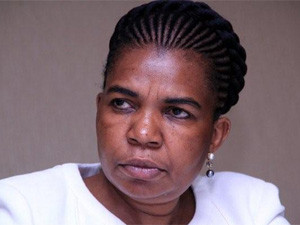
The Department of Communications (DOC) has expressed its shock at what it deems is unethical conduct by the Sunday Times and its editors, after the newspaper handed over information on its investigation into communications minister Dina Pule to Democratic Alliance MP Dianne Kohler Barnard.
This comes after City Press reported yesterday that the Sunday Times handed over the information to Kohler Barnard, who then submitted it to Parliament's ethics and members' interests committee, which is conducting an inquiry into Pule.
In the statement issued by the DOC yesterday, it calls on the Press Ombudsman to investigate the matter and the South African National Editors' Forum to take note of this "shameful behaviour" by the Sunday Times editor. "This latest revelation raises serious questions about the Sunday Times' independence and its adherence to the press code. The Sunday Times is no longer just the messenger. It has become part of the story."
In the document handed to Parliament, Pule is quoted as saying she suspected Ayanda Dlodlo, senior ANC member and friend of president Jacob Zuma, and Durban businessman Mabheleni Ntuli of leaking information that made its way into the press. The document also contains flight details, details of a meeting between Pule and the Sunday Times, facilitated by soccer boss Jomo Sono, and details of a source claiming Pule had shared a room with businessman Phosane Mngqibisa on overseas trips (although Pule denied they were ever romantically involved).
According to the City Press report, Sunday Times editor Phylicia Oppelt said the newspaper was concerned the committee might reach a finding based on partial or incomplete evidence and, therefore, felt obliged to cooperate in the investigation. "Ms Pule's actions are a matter of great public interest and that is where the focus should remain," Oppelt was quoted as saying.
The DOC, however, dismissed Oppelt's justification for her actions, saying she "disgraced" South African journalism. "We have a duty as society to make sure South African journalists do not become lapdogs for political masters."
The DOC compares Oppelt's actions to the days of Apartheid "when the nexus between politics and journalism was often murky and shameful".
According to the DOC statement, a number of questions are now raised, including how the Sunday Times become aware of partial and incomplete evidence before the committee, and was it perhaps Kohler Barnard that informed the publication of this.
The DOC also poses the question of why the newspaper chose to submit the information anonymously through a member of the DA, instead of following normal Parliamentary processes which allows for anyone to submit a complaint against a Member of Parliament.
Share